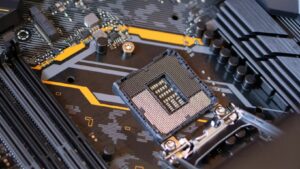
Ever wondered what magic device connects your home network to the vast world of the internet? It’s not magic, but it’s certainly vital. This article will demystify the key hardware that acts as the gateway between your network and the internet.
From streaming your favorite shows, to engaging in video conferences, or simply browsing through social media, there’s one device that makes it all possible. It’s a piece of hardware that’s often overlooked, yet it’s the linchpin of your online activities.
Which Hardware Device Connects Your Network To The Internet?
Diving deeper into the dynamics of internet connections provides an insightful perspective on the role of a vital networking hardware device in facilitating online activities. The sections herein shed light on fundamental concepts critical to internet connectivity and integral terminologies.
Basics of Internet Connectivity
Internet connectivity forms the backbone of modern digital communication. It uses a complex system of digital data transmission protocols and hardware devices that connect individual networks to the expansive world of the internet. At the core of this system resides a hardware device, often underappreciated, foraging a bridge between your home network and the great internet wilderness.
Key Terminologies in Internet Connectivity
 Router: A hardware device that forwards data packets between computer networks, essentially acting as the postmaster of your digital data.
Router: A hardware device that forwards data packets between computer networks, essentially acting as the postmaster of your digital data.
Modem: Another critical hardware component that converts the digital data to a format suitable for transmission over telephone or cable lines. Basically, it’s the translator between your home network and your ISP.
ISP (Internet Service Provider): A company that provides internet access to customers. It serves as the bridge – the wide highway that your data travels on – between your home network and the internet.
HTTP (Hypertext Transfer Protocol): The protocol, or system of rules, used for transferring files (text, graphic images, sound, video, and other multimedia files) on the internet.
IP Address (Internet Protocol Address): A unique string of numbers and/or letters that identifies each device on a network. It’s akin to your home’s mailing address, but for your digital devices.
Understanding these terminologies provides a solid grounding in internet connectivity mechanics and highlights the crucial function of the hardware device that provides the junction between your network and the internet.
Hardware and Internet Connections
This section elucidates the correlation between hardware devices and internet connectivity. Hardware forms the nucleus of any web-based interaction, translating digital signals into optimum user experience.
Role of Hardware in Internet Connections
Hardware reigns supreme in establing connections to the internet. Think of hardware components like bridges; they link devices on one side (the home network), to a destination on the other (the world, via the internet).
A device that plays a pivotal role in the internet linkage process is the modem. This seemingly small device accomplishes the mammoth task of converting signals from an ISP into data your device can understand and vice versa.
The Modem – Your Primary Internet Connector
A modem serves as the lynchpin device bridging home networks to the vast online universe. It functions by modulating and demodulating (from where its name, modem, derives) digital and analogue signals.
This ability converts digital data from a device into a signal suitable for a phone line or cable network, thus enabling uninterrupted communication with the internet service provider (ISP).
The Backbone of Internet Access
 While it’s clear that networking hardware devices are essential for internet connectivity, the modem emerges as the pivotal player. It’s the primary bridge, converting digital data into signals suitable for ISP communication.
While it’s clear that networking hardware devices are essential for internet connectivity, the modem emerges as the pivotal player. It’s the primary bridge, converting digital data into signals suitable for ISP communication.
With unique IP addresses, modems ensure precise data packet delivery, enhancing online experiences. Whether it’s DSL, cable, or fiber optic connections, the right modem can make all the difference.
From video streaming to real-time gaming, the modem’s role is undeniable. The emergence of gateway devices simplifies connectivity, combining the functions of modems and routers. So, when it comes to connecting your network to the internet, choosing the right modem isn’t just important – it’s crucial.

